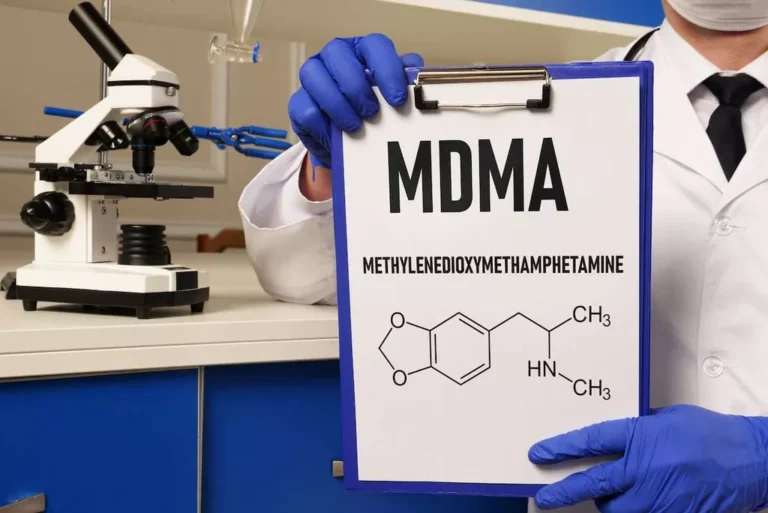
Being honest about dating a new person and how you feel about it can help you recognize any potential unhealthy patterns or emotional pitfalls. Evaluate your progress and determine if you have taken enough time to work on your emotional triggers and learn healthy ways to cope with stress before romantic relationships in recovery entering a new relationship. Make sure you are healthy and comfortable enough in your sobriety to handle the challenges dating can introduce. When honestly looking at our past behavior while under the influence of drugs or alcohol, I think it isn't easy to feel good about yourself.
The family member(s)
- This may include friendships involving substance use or relationships characterized by negativity, toxicity, or a lack of mutual respect and support.
- It requires the right treatment to re-program your mind to live without them.
- If your family and friends aren’t receptive to your attempts to fix things, don’t let it discourage you.
- Sober living allows individuals to fully engage in emotional intimacy, strengthening their bond with loved ones.
- The supportive partner may also go through their own emotional process.
Conversely, parents and grandparents will often feel angry, hurt, or betrayed by an older child or adult child using substances under their roof, lying to them, or stealing from them. If parents provide financial support – or other types of support – and realize they’ve been supporting an addiction instead, that can be difficult to come back from. Addiction destroys all types of relationships, from partners to children to colleagues. If your addiction got you in trouble with law enforcement, your loved one may hold onto the way that experience made them feel.
Treatment Facilities

It’s a severe illness that affects not only the body and mind but also relationships and overall quality of life. It is important to take inventory of your current relationships so you can identify those that will help or hinder your progress toward health and healing in recovery. Moreover, consider whether relationships that are not supportive of your priorities deserve your time and energy. If something doesn’t seem or feel “right,” it’s important to pay attention to that gut feeling and be able to communicate about it. Identifying and shedding unhealthy or “toxic” relationships is also part of the recovery process. Sobriety often necessitates a shift in social circles and environments to avoid triggers and temptations.
- In addition, you can visit The National Coalition Against Domestic Violence (NCADV), a domestic violence prevention advocacy group with a list of resources for relationship abuse help.
- When the time comes for it, you’ll also have someone to go to after rehab.
- If you’re a parent, the effects of your addiction on your family have entirely different elements.
- Incorporating these activities into the daily routine ensures regular access to professional guidance, peer support, and a safe space to share experiences and challenges.
Why is it important to rebuild certain relationships after addiction?

Sometimes, even though you’re ready to start rebuilding trust, the people you care about aren’t quite ready yet. If they’re not prepared to meet with you, extend their hand in friendship, or trust you quite yet, you need to respect their boundaries. Pushing yourself on them or trying to explain that things are different now that you’re sober can sever an opportunity for you to repair this relationship in the future. It’s good to form new relationships like this because the environment is often a big contributor to addiction and changing who you spend time with can have a hugely positive impact.

Relapse is common and experts see it as an opportunity for learning about and overcoming impediments to change. Rebuilding relationships during recovery can be a complex and uncertain journey. Wondering if an addicted person will ever love you again can be tough. It’s normal to feel insecure, but it’s important to remember that negative emotions won’t help you make progress. With dedication, expert guidance, and practical approaches, it’s possible to overcome unhealthy habits, repair any harm, and rebuild the crucial building blocks of your relationships. It can lead to dependence through repetitive cognitive, behavioral, and physiological symptoms.
Individualized, evidence based treatment, to fit your needs.
This change can create an environment where both individuals in recovery and their loved ones are committed to supporting each other’s well-being. By working together to maintain healthy habits and encouraging each other’s growth, relationships can thrive and be a positive force in recovery. Additionally, it's crucial to accept that relationships may evolve or change after rebuilding trust. Embracing this change and consistently proving oneself trustworthy can lead to the development of stronger or different relationships post-recovery.
Personality changes, abuse, and violence

Starting a new relationship can be exhilarating, but it’s important to be mindful and discerning if you or someone you know is considering dating in recovery. There you have it, a look at the four key relationships in recovery. I want to touch base on all of those areas, to put a more global view on the concept of relationships. As they say in the 12 step programs, recovery is all about action. You can think and study all you want, but nothing happens until you take action. I used to be envious of people who had a strong connection to God or religion.
Relationships impact quality of life.
But what many people don’t realize is that even after sobriety, addiction can continue to have a negative impact. Living with active addiction creates extraordinary relationship challenges and does considerable damage to significant relationships—with partners, parents, children, and close friends. With hard work, patience, and love (for yourself and others), reconnecting https://ecosoberhouse.com/ with the people you care about most and building new, stronger relationships is totally possible. While sobriety can bring significant positive changes to relationships, it’s essential to acknowledge that there can be struggles along the way. Recovery can unearth a variety of issues that individuals may encounter as they navigate their relationships.